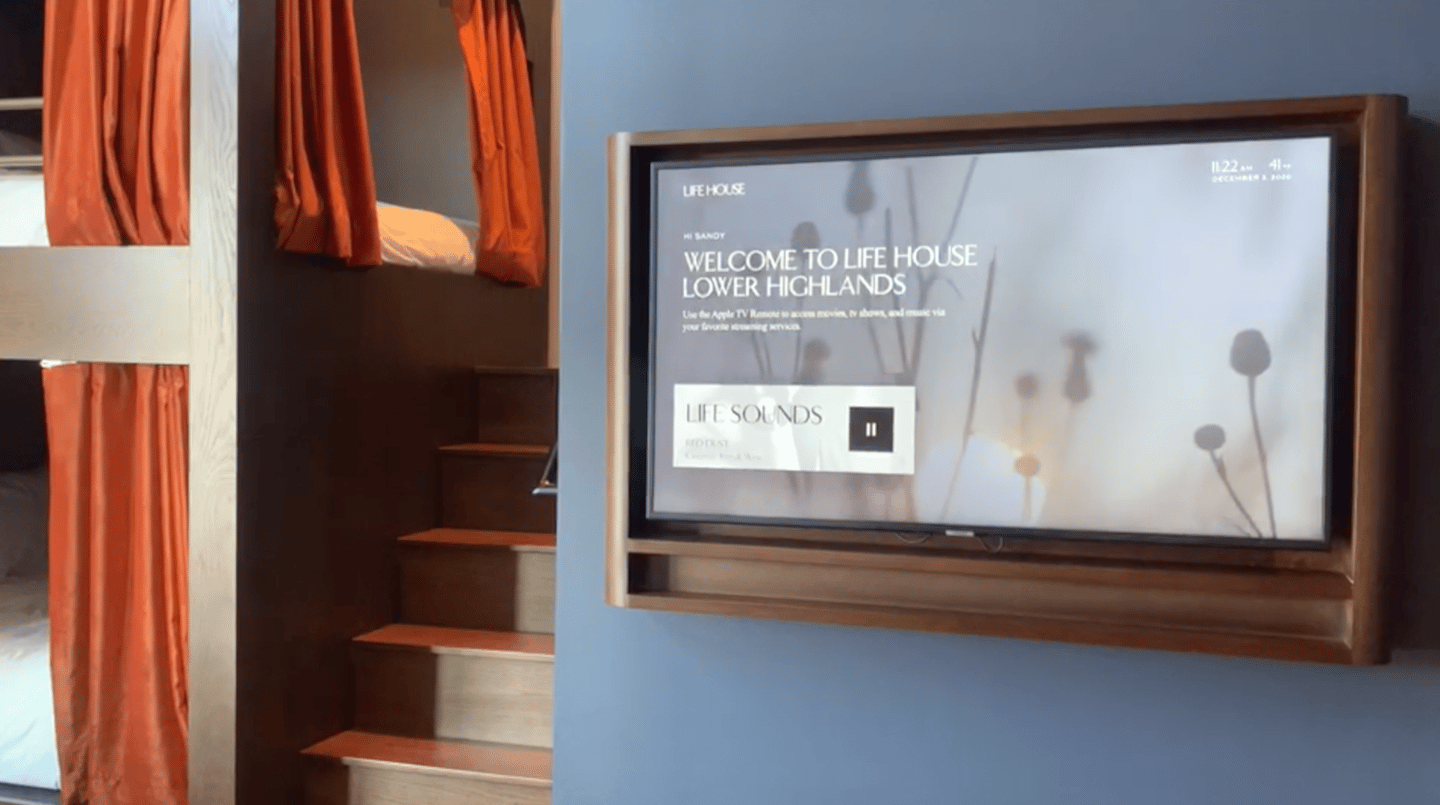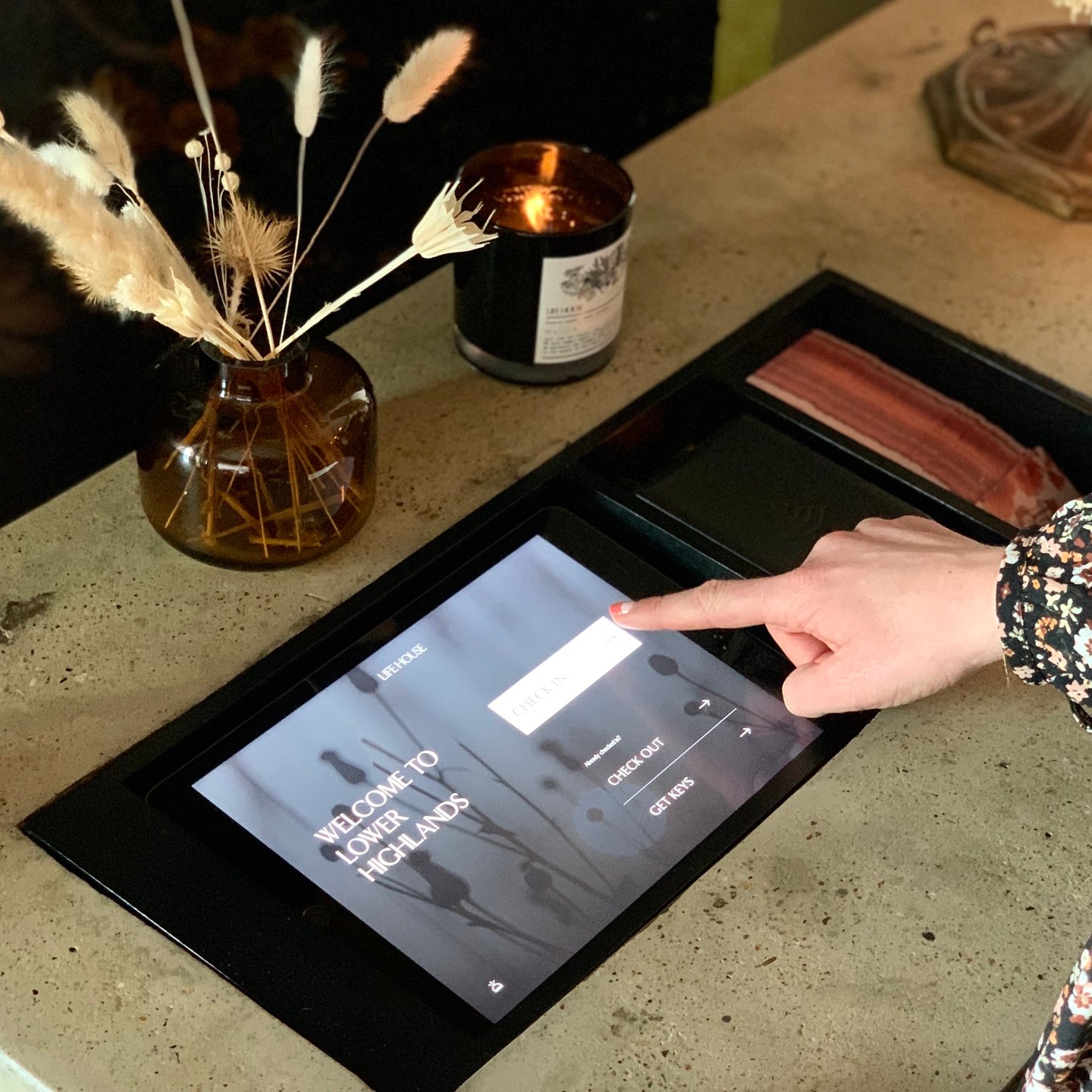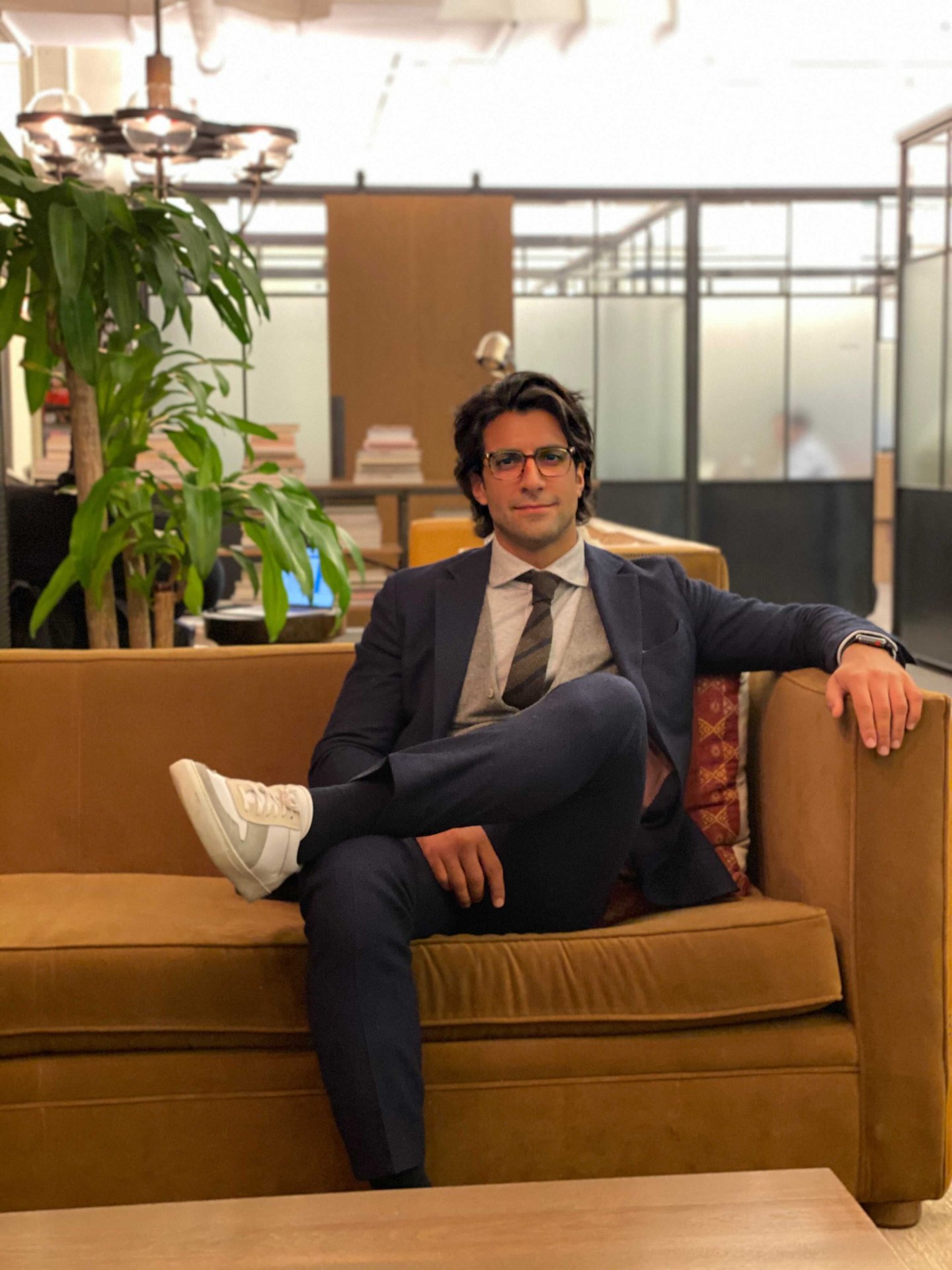The Best of Both Worlds
Life House, a tech-enabled hotel brand and management company, was born out of a love of Microsoft Excel spreadsheets. Rami Zeidan, CEO, started his career in real estate on the private equity side and found that he had a knack for using Excel to solve complex problems. After leaving the real estate industry for the luxury and boutique hotel space, Zeidan found that his Excel skills could really improve upon the way hotel operations were being handled. As he studied profit and loss spreadsheets he learned that there were many costs that went into running a hotel that didn’t add value to the guest experience and could easily be automated such as finance and accounting, pricing and the various complex layers of middle management. By automating these costs, the hotel would be delivering the same guest experience while creating more profit for the hotel.
Zeidan quickly realized that if his hotel was having this problem, others were likely having it too. So, he decided to solve problems, at scale, for the independent and boutique hotel industry by reinventing the traditional hotel tech stack completely. And in 2017, Life House made its debut.
- What’s in a Name?
When asked about the origins of the company’s name, Zeidan said he believes that travel and belonging to a place brings meaning to life.
“While brands speak to design and aesthetic or other superficial elements, we wanted to speak to the substantive elements and emphasize the spirit of our houses, not the decor,” he explained. “Furthermore, a key element to feeling a sense of place and belonging is related to trust and authenticity. To us that means that the guest experience requires engagement not transactional service. And we've built software to help automate functions that require a staff member to sit in an office or behind a desk and empower them to be great at truly engaging with guests.”
According to Zeidan, by making people feel like they belong helps to create mental space for them to engage organically with others and be present in their travels and interactions.
“We're making and powering houses that embody ‘life’ and that's where the name came from.”
BENEFITS TO OWNING, OPERATING THE TECH
What makes Life House unique, compared to other industry players, is that it has built most of its back-office software applications. Currently, the company’s IT team consists of 14 staff members.
“By being the technology owner and the property owner, we have a really fast feedback loop,” Zeidan explains. “We can immediately see when issues arise, where the guest experience can be improved or where workflows need to change for the better.”
This insight into the technology and the way it operates in the real world also allows the Life House IT team to develop brand new approaches to solving problems, says James Gillis, VP of Product. For instance, a hotel manager might have some great ideas on how they want to operate their hotel, but they lack the technical expertise to bring those ideas to life. Conversely, hotel technology providers may shy away from meaningful disruption of hotel operations because it might make their products harder to sell.
“By being the architect of both the hotel and the technology, we can look deeply into the problem, test multiple hypotheses, and solve the issue fairly quickly,” Gillis notes. “Plus, me and my team don’t come from a hotel background and have very few pre-conceived notions of standard operating procedures at hotels. This allows us to think outside the box and be open to taking new approaches that other operators might consider irregular.”
Additionally, because the hotel’s tech stack is built within a cloud-based platform, it can roll out new solutions to its properties with just a click of a button. On average, the company releases new features or updates several times a week.
“We’re constantly iterating and improving the functionality of our software,” Zeidan adds.
Additionally, when creating this software, the Life House IT team set out to create a flexible software structure that would facilitate the integration both of new features and partner products to ensure it is always able to offer the best technology possible.
AN INSIDE LOOK
When creating and implementing technology, the Life House IT team often reflects on a different successful tech startup: Uber.
“Uber didn’t just automate the dispatcher,” says Gillis. “They built a software that makes it really easy to be a good driver with little to no training, all through digital applications. The result is a better rider experience with a lower price for the ride. And we try to take the same approach.”
For example, the company created Rhythm, its hotel staff application. It offers all the “typical PMS features” but has added task management and housekeeping management that help provide a highly organized and efficient set of day-to-day workflows for staff members. Additionally, Rhythm has a very human-centered design to ensure that it's easy to learn and use by staff members. Not only does this make staff members happier, but it also helps to reduce the cost of hiring and training new staff, which is especially important within an industry with such a high rate of turnover. And when staff are more efficient, they’re spending less time behind a screen and more time interacting with guests and improving guest loyalty.
Life House integrated its guest-facing app, Room App, with Rhythm. Developed in just two weeks, this app resides on the guestroom television and provides guests with curated entertainment options, allows guests to interact with property staff and make requests for towels or a toothbrush, allows guests to provide feedback, and even allows them to ask questions. After implementing this app on property, Life House saw an immediate improvement in customer satisfaction with a 21% increase in guest satisfaction related to TV experience based on post-stay surveys.
Life House, of course, has its own smartphone app, which, among other things, seeks to offer guests a new take on social networking. The app allows guests traveling on the same dates to opt into an online community where they can make plans, meet spontaneously, join forums based on interest (i.e. nightlife, wellness, food, art etc.), and ultimately meet in person on-property. Additionally, verified local members will belong to the community to foster community and conversation between guests and locals, and organize events and activities.
“Soon we’ll be launching features that will allow app users to see if they have any Instagram, Facebook or LinkedIn connections in common,” Zeidan says. “I think being able to connect in this way while traveling is revolutionary on the guest experience side and we’re really excited about it."
- How It Works in the Real World
In November 2020, Life House assumed the management of the historic Forbes Five-Star Wheatleigh Hotel and its AAA Five-Diamond restaurant in the Berkshires. Since taking over management in November, Life House has increased RevPAR by 76% over the prior operator’s pre-COVID performance, decreased operating expenses by 32% on an apples-to-apples basis, and simultaneously increased guest satisfaction scores. Additionally, Life House is generating 72% of Wheatleigh bookings directly on its website at a marketing cost of only 1.26% (compared to an OTA commission of nearly 20%).
In addition to providing independent and boutique hotels with operational advantages, Life House is able to take over existing hotels in as little as 1 week and train staff on its software in a single day, materially decreasing transition costs and pre-opening costs for owners. In the case of the Wheatleigh Hotel, it took 21 days to take over the hotel and 2 days to train staff.
THE PRICE IS RIGHT
Life House also created its own pricing algorithm, which is so highly automated, staff members generally spend less than five minutes a week on monitoring it. This means there is no Director of Revenue, no Revenue Manager and no analysts working with pricing software and historical data to predict room rates at Life House. Instead, Life House relies on OTAInsights to provide pricing information for competitor products and room types within the market at large.
These tools update in real time and the Life House pricing algorithm uses that data to update room prices every hour automatically for the following 365 days. But the pricing algorithm doesn’t work in a vacuum. It’s highly connected to the company’s digital marketing platform. The marketing platform will push the prices through and purchase advertisements on metasearch platforms like Google or Kayak. The marketing platform will continue to bid for ads up to a predetermined ROI.
“What happens is we’re not just driving optimized pricing, we’re also driving increased occupancy,” Zeidan says. “We know when it is a good time to market our product and when there is demand for our rooms because we have all of this data pouring in.”
By tying pricing to marketing, Life House has become adept at acquiring transient guests, who are willing to pay higher room prices, and has become less reliant on booking corporate business groups, which have negotiating leverage and demand lower prices.
WHY REINVENT THE WHEEL?
When Life House first started operating, “we might have felt the need to reinvent every single piece of puzzle,” Zeidan says with a grin. “Now we know that we definitely don’t.”
Hotel executives will often come to Zeidan and ask: What’s proprietary? What’s your secret sauce? Why are you partnering with these companies instead of building everything yourself?
“What we’ve learned is that it would be unwise not to rely on great products that are already out there,” Zeidan explains. “For example, we’ll never build a better CRM than Salesforce, and it wouldn’t be a good investment on our part to do so. These products are high quality, with large teams dedicated to ensuring the tools are highly effective. Why wouldn’t we partner with them?”
Yet, Zeidan says he’s observed that the industry at large is still struggling to adopt services that are relatively easy to integrate with even legacy systems, such as revenue management software.
“I think much of the hotel industry has kind of thought about hotel tech or tech in general as a necessary evil or something that we should add to our hotel,” Zeidan points out. “But we think of tech as being fundamental to its operation and should be involved in everything from generating revenue to training staff. We built our company culture around this belief. So, when a problem arises, the first thing we say is: How can we solve this with technology?”
- Tech for Sale
“We have always viewed Life House as a technology company delivering software products which we monetize through Hotel Management Agreements,” Gillis says. “As the company gained awareness in the industry we started receiving many inquiries expressing interest in the solutions we offer, but not necessarily the entire suite of products and services.”
For example, a hotel owner may be very happy about how their front-of-house team operates and satisfied with their existing PMS, but they are dissatisfied with their revenue management and marketing performance.
“That’s when it became evident that we should not only be monetizing our technology through HMAs, but also as SaaS and a la carte management services,” Gillis adds. “This will not only make our offerings more attractive to a larger audience, but will enable us to very quickly demonstrate our value to new hotel partners.”







